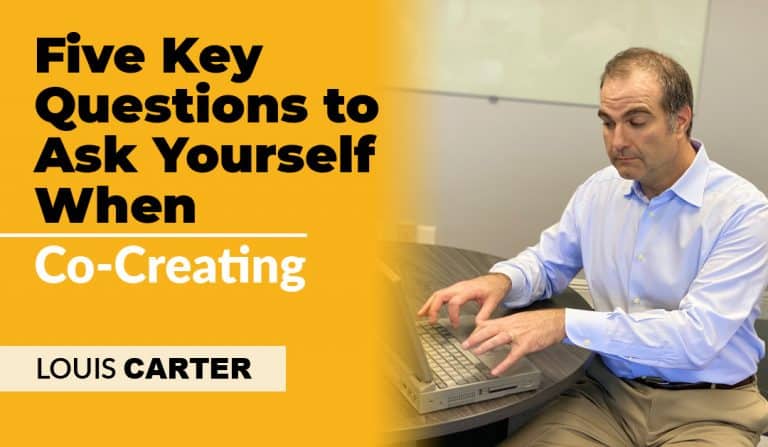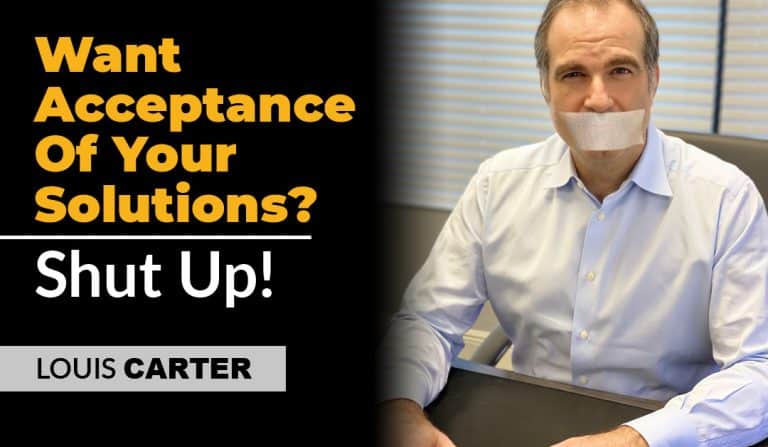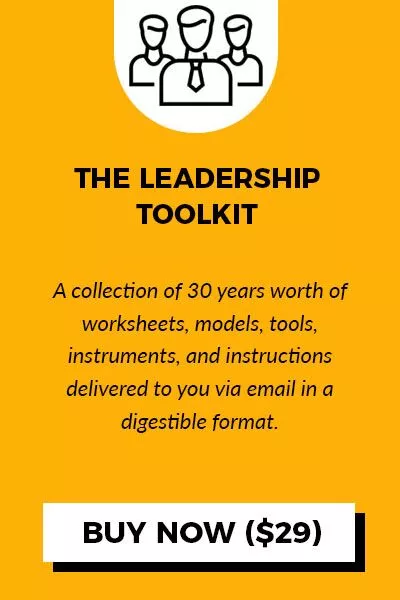True Leadership in Healthcare During and Post COVID-19: 21 Actionable Tips
As we face the most significant public health crisis of modern times, effective leadership in healthcare has never been more critical. Whether you are a CEO overseeing a group of healthcare clinics or a physician-leader running a clinical practice, leadership jobs in healthcare demand a specific kind of intellect, emotional maturity, and grit.
As tensions run high, every healthcare leader can benefit from management insight. Here are 21 actionable tips for achieving true leadership in healthcare both during COVID-19 and once the pandemic has passed.
1. Define Your Leadership Brand
If you haven’t established your personal healthcare leadership philosophy, there is no time like the present. Having a strong set of principles and values will help you face the unprecedented challenges of today and beyond. Embracing leadership models in healthcare will also help you consistently lead in a genuine way, which will garner respect from those who are desperately looking to you for direction.
2. Tune Out the Competition
Nearly everyone who achieves a position of leadership in healthcare does so with an element of competitiveness. Engaging in competition is healthy and natural. However, in times of crisis, focusing too much of your energy externally, on your peers, can backfire and have a paralytic effect. Energy is a scarce resource; devote it to reaching your own benchmarks instead of ruminating about who is vying for your spot.
3. Practice Optimism
In times of darkness and heightened emotional, cognitive, and physical burdens, the people you manage will be looking to you to know how to react. This is both the burden and beauty of management and leadership in healthcare. Instead of reflecting back pessimism—which your employees may be receiving from many other outlets, including family, the news media, and their own minds—give them the gift of a different outlook. Even if your angle is as simple as: “The sun rose today, and we all woke up breathing,” there is always room for optimism.
4. Remain Humble
As new information emerges daily, and priorities and resources shift before your eyes, it is important now, more than ever, to practice a humble healthcare leadership style. No single medical leader can solve a pandemic; however, as teammates, we are all bigger than the sum of our parts. Be receptive to employees who come to you with new information, innovations, or suggestions for improvement—otherwise, you may drown in defensiveness.

5. Keep Learning
It may be hard to feel confident as a healthcare leader these days because virtually no one is confident about anything when it comes to the COVID-19 virus. But, rather than shutting down and tuning out the flow of information, you can bolster your confidence by staying as informed as possible. Identify news sources and people you can trust, and revisit them on a weekly basis, at minimum, to make sure you are as current as possible on information related to your practice’s environment.
6. Defy Expectations
In 2017, when my client Ray Williams moved from California to southern Illinois to revitalize the Springfield Clinic, a struggling physician-owned healthcare group, as the new CEO, many said it could not be done. However, with hard work, market building, financial hygiene, and careful attention to relationship development, Ray’s excellent leadership has turned the clinic around, reaching a record clinic revenue of $1 billion this year. Aim to defy expectations; as a leader, it’s important to only listen to the naysayers long enough to know what you need to do to prove them wrong.
7. Ask for Help
When Ray hit the ground running with his new gig as CEO, he had to garner trust with his board of directors as quickly as possible. Recognizing that this might be a tall order, he knew he needed a sounding board, fast. So what did Ray do? He proactively sought out a personal executive coach to serve as an objective thought partner. Luckily for both of us, that coach was myself. With my personal on-site facilitation, identification and analysis of leadership perceptions from stakeholders, and co-creation with his Board, Ray has used relationship-based leadership principles to fundamentally transform the Springfield Clinic. Even in the middle of a pandemic, the clinic is strong.
8. Get an Executive Coach
Just as all writers need editors and all athletes need coaches, all leaders need executive coaches. Being at the top of the food chain in your organization can actually be a pretty isolating and lonely place, particularly during times of great strain. A network of support can help you survive. Identify someone to whom you can turn when you need to see problems in a new light, see how others perceive you, or when you need to find creative, out-of-the-box solutions. The best executive coaches are “co-creators,” highly resourceful, “go-to” leaders, and thought partners, as in the case of Ray and myself.
9. Empathize
Even if you think you can’t understand how others feel, you can likely understand how thinking of your employees as if they were a loved one may help. When we think of those we love, we are likely focused on understanding, empathizing, and nurturing their growth and happiness. This doesn’t mean you solve all their problems for them. However, it does mean that the next time you are at an impasse with your employees, you should take a moment to truly attempt to understand where they are coming from, what potential obstacles lay in their path, and how you can empathetically help them over the hurdle.
10. Delegate
Of the many challenges in healthcare leadership, time management may reign supreme. To exert optimal leadership in healthcare, you are no good to anyone if you are tired, overburdened, and unable to think clearly. Your team is relying on you and your leadership skills to make big-picture judgment calls. So, as frequently as possible, ditch the minutiae and delegate. Unless you absolutely have to do the task, it should not come across your desk.
11. Trust Your Team
There is no time for micromanaging during a global pandemic. As hard as it may be to hand over some of the reins, times of crisis command us to define our leadership style in healthcare and to collaborate more than ever. The neat thing about trust is that it is reciprocal. When you can show that you trust your team members, they will have trust in you in return.
12. Be Solutions-Oriented
It is easy to get caught up in a cycle of toxic complaining, especially as pandemic-related matters seep from your work life into your personal life. Healthcare leaders are often asked to do the impossible: to work more for less, to buoy the collective spirits, and to be grateful all the while. To break this cycle, and effect transformational leadership in healthcare, make an effort to pair every gripe with a potential solution or advice to stop a dysfunctional cycle.
13. Hunt for Humor
Now, more than ever, we all need a good laugh. Laughter can help us transcend adversity, and it can boost our endorphins. Beyond this, infusing your team with a laugh every now and then might have the added benefit of enhancing your leadership. Research has shown that when leaders use humor, their employees not only feel more collegiality, but they also feel more cared for and rate their leaders as more considerate. In your efforts to create a community of caring, try a joke.
14. Channel Bezos
The three big principles that skyrocketed Amazon from a book-selling start-up 26 years ago to the world’s most valuable company, with a brand value of more than $415 billion? Putting the customer first, inventing, and being patient, according to CEO Jeff Bezos. In the era of COVID-19, Jeff’s first two principles are on autopilot: we are all already working overtime to put our customers (patients) first by keeping them healthy and safe, and we are racing to invent novel therapeutics and vaccines. The third principle, patience, often escapes us, especially in the quagmire of quarantine. However, staying patient—with yourself as a leader, with your team members, with your loved ones, and with the world at large—could pay dividends in the long run.
15. Co-Create Consensus
When the future is uncertain, your teammates may be more hesitant than usual about embracing change. Especially in clinical environments, where your team members’ physical health may be on the line, it is paramount to involve everyone in decision-making and build a consensus about how to proceed safely. For certain groups, this may mean altering parts of a clinical physical exam; for others, this may mean a full conversion to a telemedicine model. By bringing everyone to the table and inviting them to design the open communication, you will reduce the chance that your employees walk away feeling alienated and unheard.
16. Stay Engaged
Amidst the hectic swirl of pandemic-related challenges, it’s understandable if professional engagement has toppled from your priority list. However, engaging with other like-minded healthcare leaders, and learning more about effective leadership styles in healthcare, is crucial. We have been operating in silos for the past five months, but healthcare conferences provide an opportunity to swap war stories and learn from each other. Check out the following upcoming events to ensure you are staying up to date on strategic leadership in healthcare:
- Modern Healthcare’s Leadership Symposium: September 2020
- HLTH Virtual Conference: October 2020
- Modern Healthcare’s Workplace of The Future Conference: October 2020
- Mayo Clinic Healthcare Leader Intensive: November 2020
- Modern Healthcare’s Strategic Marketing Conference: November 2020
- Studer Group Healthcare Executive Summit: December 2020
17. Simplify Processes
The era of COVID-19 has established itself as complicated. Just as we adapt to one new set of guidelines or algorithms, new ones are being issued. To help your team navigate this as best as possible, embrace simplicity. Even if the CDC has published multiple return-to-work strategies for healthcare providers, this doesn’t mean your healthcare system has to adopt them all. Choose one and stick with it. Your team will appreciate that you are streamlining processes, both now and in the post-COVID era, too.
18. Stay Curious and Ask Questions
Ask questions, even when it might seem tedious or “stupid.” Your tendency might be to conserve time by cutting down on idle chit chat (and masks, social distancing, and virtual conference calls don’t help). But keeping an open line of communication can help you uncover a novel insight about your team, or a problem that everyone is afraid to address with you. You never know which people in your group are sitting on a great idea and just waiting to be asked. A healthy sense of curiosity will lead you to them.

19. Expect Hard Work
When a vacuum of uncertainty is brewing, there may be a tendency to let bad behaviors slide into even worse behaviors. However, letting projects drop and deadlines slip, and then blaming it on “the times,” can ultimately mean that your team stops achieving goals, and this will absolutely hurt morale. It’s your duty as a healthcare leader to keep your organization humming and to keep your people working at the highest end of their license, degree, or job description. Set your expectations high.
20. Get Creative
In pandemic times, “get creative” also means “get resourceful.” I’ve heard of an emergency department medical director who was driving hundreds of miles a week in early April, crossing state borders, even, to ensure that his team members had all the PPE that they needed to feel safe and keep doggedly treating COVID-19 patients. He didn’t limit himself to vendors in the medical industry, either; the trunk of his car was full of scuba masks from an old acquaintance and dust masks from his friends in the construction industry. And you know what? His obvious devotion not only kept everyone safe, but it also kept them loyal.
21. Visualize Success
What does success in healthcare leadership even look like in 2020, when all is said and done? It may be radically different depending on your organization. For some, success may mean hitting a target of a mere 20 percent of last year’s revenue. For others, it may be simply keeping the hospital or physicians office open through the end of the year, or preventing employees from winding up as patients in the ICU. Whatever success means for you and your team this year, deliberately visualize it, and direct your aim accordingly.
Ultimately, many styles of leadership exist in healthcare. You alone know yourself and your team most intimately. Regardless of where you decide to direct your energy, your efforts to hone your leadership will not go unnoticed. By leading with intentionality, you will feel calmer, more energized, and more in control of your uncontrollable environment.
What You Can Do, Today
Ultimately, many styles of leadership exist in healthcare. You alone know yourself and your team most intimately. When it comes to reinvigorating your practice environment, you may benefit from reading more about the Designed Open Communication (DOC) process or checking to see if you qualify for a Most Loved Workplace Certification.
Regardless of where you decide to direct your energy, your efforts to hone your leadership will not go unnoticed. By leading with intentionality, you will feel calmer, more energized, and more in control of your uncontrollable environment – get out there, and get started.
References:
https://louiscarter.com/leadership-philosophy/
https://youtu.be/RXDC1OKp4jA
https://journals.sagepub.com/doi/full/10.1177/2041386619846948
https://www.prnewswire.com/news-releases/brandz-top-100-most-valuable-global-ranking-reveals-growing-power-and-influence-of-technology-301085042.html
https://louiscarter.com/amazon-leadership-principles/
https://www.leadership-symposium.modernhealthcare.com
https://www.hlth.com/virtual
https://www.workplace.modernhealthcare.com
https://ce.mayo.edu/special-topics-in-health-care/content/mayo-clinic-healthcare-leader-intensive-november-2020-general-session
https://www.strategic-marketing.modernhealthcare.com
https://www.studergroup.com/conferences/2020/dc-care-and-consumer






